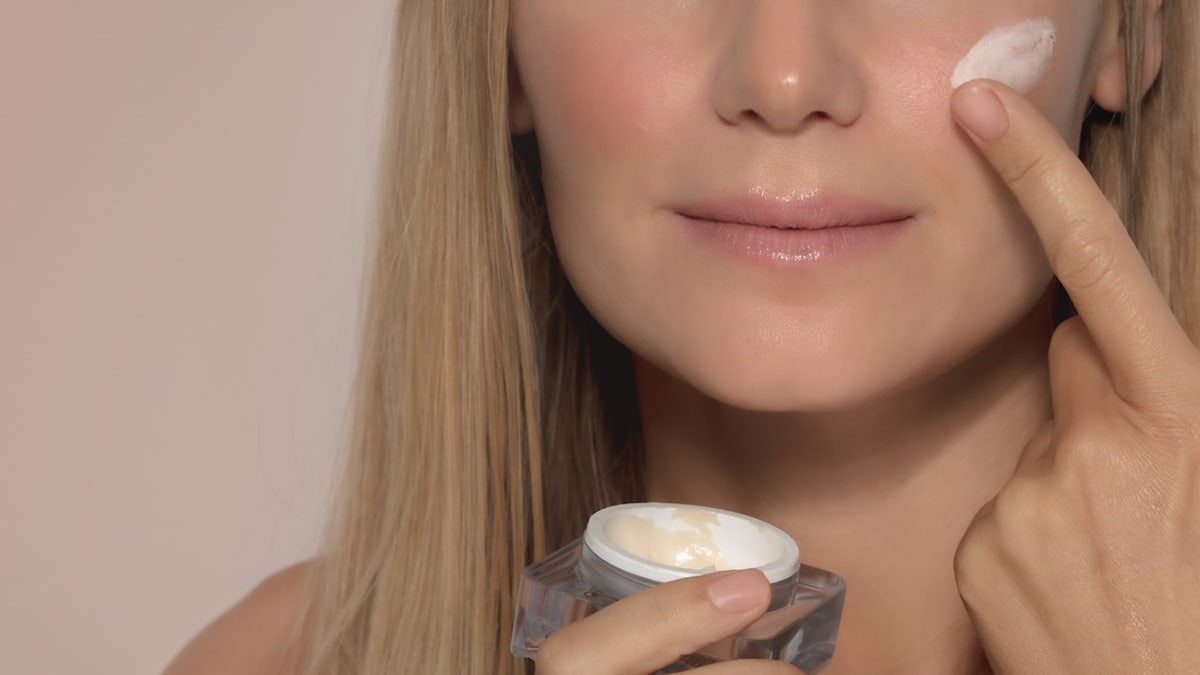The use of beef tallow in skincare has recently surged in popularity, sparking discussions and debates across social media and among skincare enthusiasts. This natural product, derived from the fat surrounding a cow's kidneys, is touted as a superior moisturizer with various benefits. But is it all it's cracked up to be? Let's delve into the production process, potential advantages, drawbacks, and expert opinions surrounding this trending skincare ingredient.
From Farm to Face: The Making of Beef Tallow Balm
Lily Wilmoth, founder and president of Hearth and Homestead, a natural skincare company, explains that their tallow balm originates from 100% grass-fed beef suet. This specific fat, prized for its nutrient density, undergoes a meticulous process: it's harvested, ground, rendered, and then gently melted with herb-infused olive oil. The resulting mixture is whipped, cooled, and finally packaged into jars, ready for application.

Hearth and Homestead founder Lily Wilmoth with her family. (Hearth and Homestead)
Potential Perks for Your Skin
Advocates of beef tallow highlight its simple composition, contrasting it with many commercial moisturizers laden with chemicals and additives that can irritate sensitive skin. Tallow, being oil-based and waterless, doesn't require preservatives and is believed to be less disruptive to the skin's natural barrier.

Tallow balm is suggested for use after cleansing with a natural soap. (Hearth and Homestead)
Dr. Brendan Camp, a dermatologist, acknowledges that beef tallow is generally well-tolerated and acts as an effective emollient, smoothing and softening the skin by retaining moisture. Its omega-3 fatty acids and vitamins contribute to skin barrier health and offer protection against oxidative stress.

Tallow's fatty acid profile is said to be similar to human skin. (Hearth and Homestead)
Weighing the Risks and Considering Alternatives
Despite the touted benefits, beef tallow isn't a universal solution. Individual skin types react differently, and those with oily skin might find it too heavy. Patch testing is recommended for sensitive skin. Dr. Camp also emphasizes that beef tallow products, like many over-the-counter supplements, lack FDA regulation.

A dermatologist advises caution as beef tallow may cause inflammation in some. (iStock)
Dr. Tiina Meder, a cosmetic safety expert, questions the current enthusiasm for beef tallow, citing the availability of numerous advanced creams and moisturizers. She points out that beef tallow lipids aren't bioidentical to human skin lipids and lack linoleic acid, a crucial anti-inflammatory and antioxidant present in human sebum. She also warns that some lipids in beef tallow could be pro-inflammatory and sensitize the skin.

Some lipids in beef tallow may cause skin sensitivity, according to an expert. (iStock)
For those hesitant about beef tallow, Dr. Camp suggests exploring fragrance-free and dye-free moisturizers containing hydrating ingredients like ceramides, glycerin, hyaluronic acid, and squalane.








